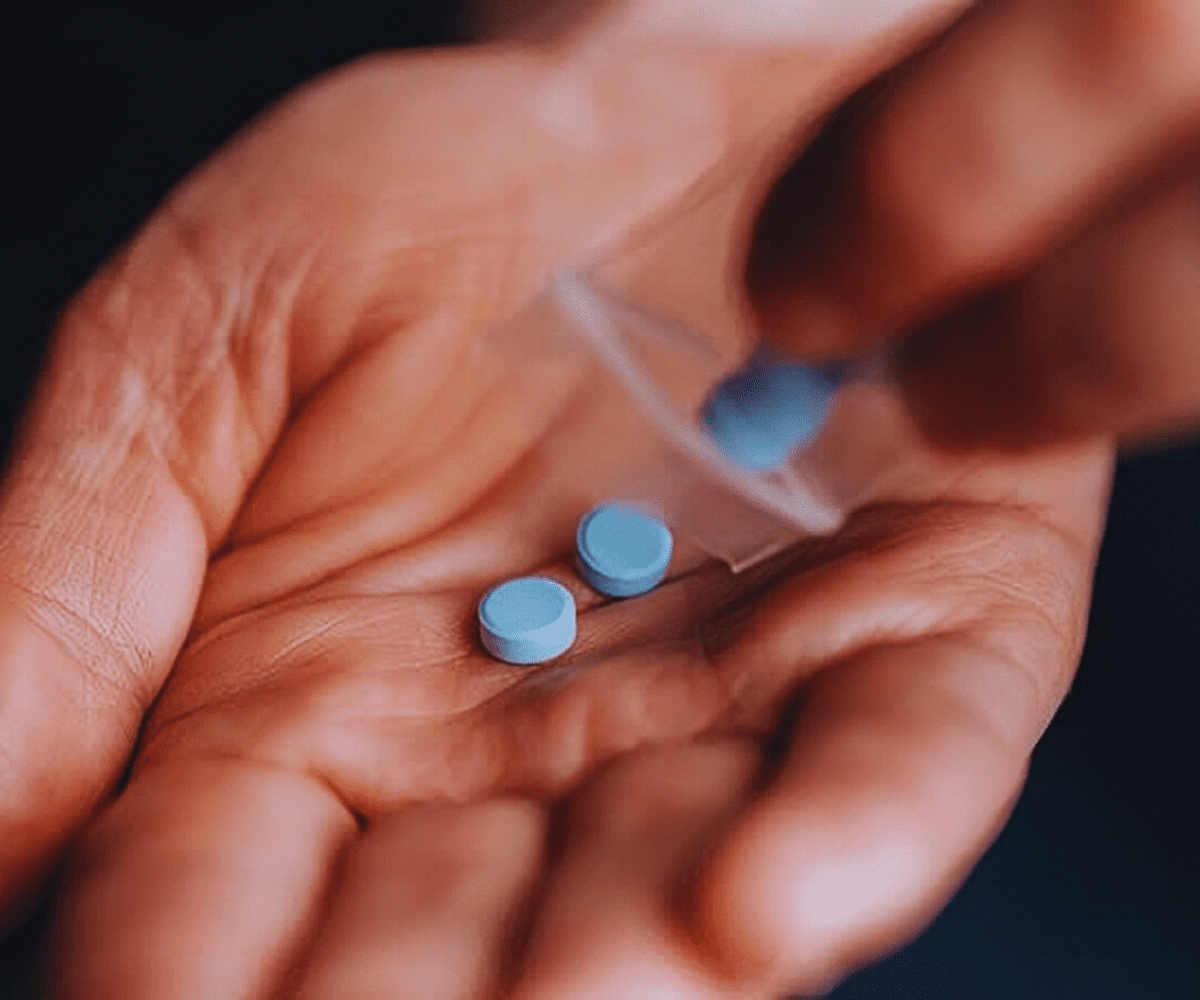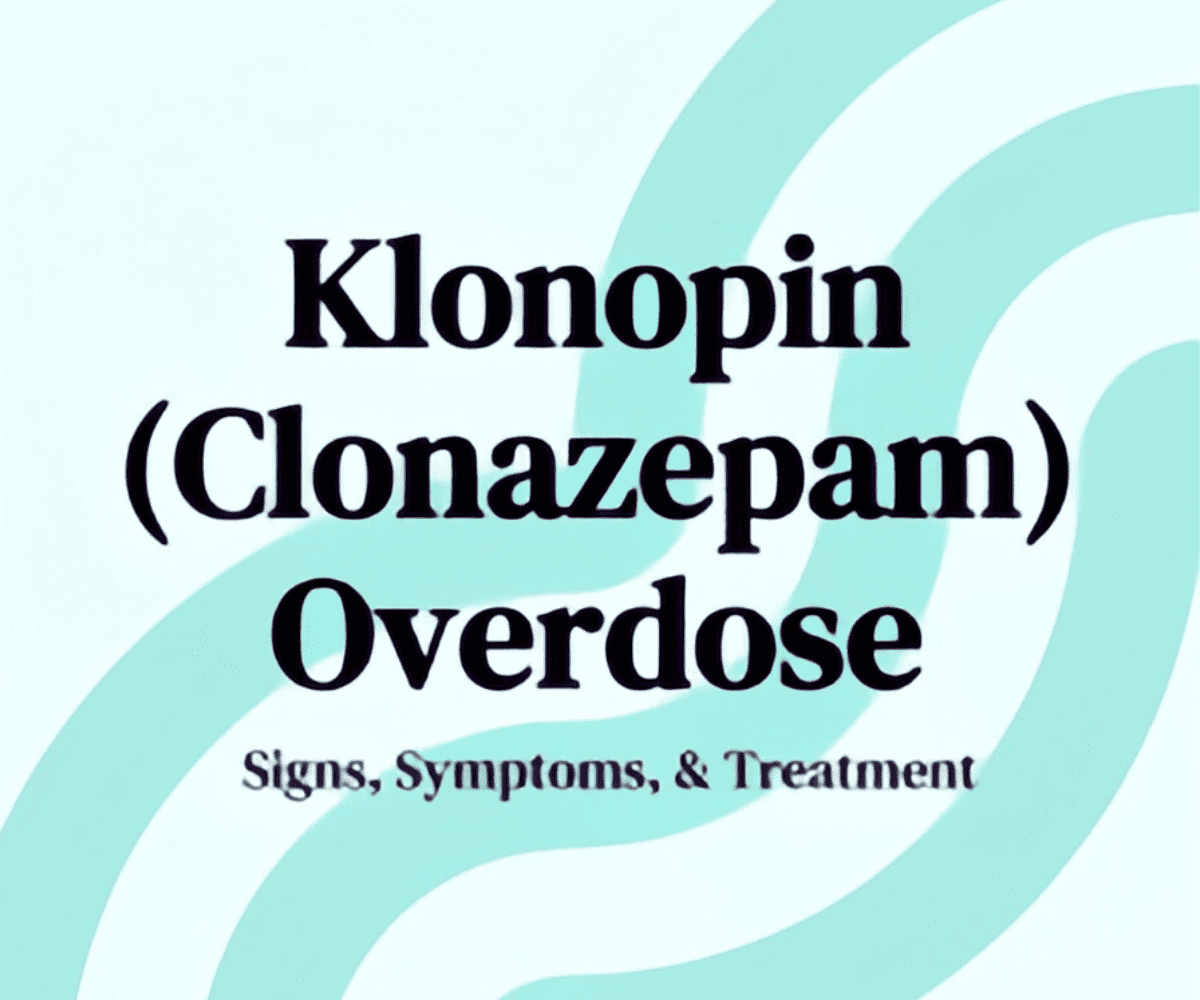Klonopin Overdose: A Comprehensive Guide
Klonopin, which is also called clonazepam, is a medicine used for different problems like anxiety, seizures, and trouble sleeping. It can help if you take it the right way, but it can be dangerous if you use too much or mix it with other things. This article explains what happens if someone takes too much Klonopin, the signs of an overdose, why it might happen, and what to do if it does.

What is a Klonopin Overdose?
If someone takes too much Klonopin, it’s called an overdose. This happens when they take more than what the doctor says is okay. Too much Klonopin can be very harmful and might even be life-threatening. Even a little bit of Klonopin, especially with alcohol or opioids, can make an overdose more likely.
Symptoms of Overdose
The signs and symptoms of a Klonopin overdose can vary in severity depending on the amount taken and individual factors. Some common symptoms include:
– Drowsiness: Excessive sleepiness and difficulty staying awake.
– Confusion: Disorientation and trouble thinking clearly.
– Slurred speech: Difficulty speaking and slurred or mumbled words.
– Coordination problems: Loss of balance, unsteadiness, and difficulty walking.
– Slow or shallow breathing: Respiratory depression, which can be life-threatening.
– Coma: In severe cases, a overdose can lead to a coma or unconsciousness.
Causes of a Klonopin Overdose
There are several potential causes of a Klonopin overdose, including:
- Taking too much: Intentionally or unintentionally taking more than the prescribed or recommended dose of Klonopin.
- Combining with other substances: Using Klonopin with other central nervous system depressants, such as alcohol, opioids, or other benzodiazepines, can increase the risk of an overdose.
- Existing medical conditions: Certain medical conditions, such as liver or kidney problems, can affect the way the body metabolizes and eliminates Klonopin, increasing the risk of an overdose.
- Accidental ingestion: Children or pets may accidentally ingest Klonopin, leading to an overdose.
What to Do in Case of a Klonopin Overdose
If you suspect someone has overdosed on Klonopin, it is crucial to act quickly and seek immediate medical attention. Here are the steps you should take:
- Call emergency services: Contact emergency medical services or the poison control center immediately. Provide them with as much information as possible, including the amount of Klonopin taken and any other substances involved.
- Stay with the person: Do not leave the person alone until medical help arrives. If they are unconscious, try to wake them up and keep them awake if possible.
- Administer first aid: If the person is not breathing or has no pulse, perform CPR (cardiopulmonary resuscitation) if you are trained to do so.
- Provide information: When medical professionals arrive, provide them with any relevant information about the person’s medical history, the amount of Klonopin taken, and any other substances involved.
Prevention of Klonopin Overdose
The best way to prevent a Klonopin overdose is to follow your healthcare provider’s instructions carefully and take the medication exactly as prescribed. Additionally, you should:
- Never take more than the recommended dose: Do not increase your dosage without consulting your healthcare provider.
- Do not combine with other substances: Avoid taking Klonopin with alcohol, opioids, or other central nervous system depressants unless approved by your healthcare provider.
- Store Klonopin securely: Keep Klonopin and other medications in a secure location, out of reach of children and pets.
- Disclose all medications: Be sure to inform your healthcare provider about all medications, supplements, and substances you are taking to avoid potential interactions.

Conclusion
A Klonopin overdose can be a serious and potentially life-threatening situation. It’s really important to do exactly what your doctor tells you about your medicine and never take more than they say. If you think you took too much, get help from a doctor right away and tell them everything you can about what happened. Knowing the dangers and being careful can stop you from taking too much Klonopin and make sure you use it safely and it works well.
FAQs
Q1: What should I do if I accidentally take too much Klonopin?
If you accidentally take too much Klonopin, contact your healthcare provider or emergency services immediately. Do not wait for symptoms to appear, as an overdose can be life-threatening.
Q2: Can a Klonopin overdose be fatal?
Yes, a Klonopin overdose can be fatal, especially if it is not treated promptly. Respiratory depression is a major risk, which can lead to coma and death.
Q3: How long does it take for Klonopin overdose symptoms to appear?
The onset of symptoms can vary, but typically, they may appear within 1-4 hours after taking an excessive amount of Klonopin. However, in some cases, symptoms may take longer to manifest.
Q4: Can I develop a tolerance to Klonopin, increasing the risk of overdose?
Yes, it is possible to develop a tolerance to Klonopin over time, which means you may need higher doses to achieve the same effect. This can increase the risk of overdose if the dosage is not adjusted accordingly under medical supervision.
Q5: What should I do if someone else is experiencing a Klonopin overdose?
If you think someone has taken too much Klonopin, call for help right away. Stay with them, help them stay awake and breathe, and tell the doctors everything you know when they come.
Remember, a overdose is a serious medical emergency that requires prompt attention. Always follow your healthcare provider’s instructions carefully and never take more than the prescribed or recommended amount.
For more, Click here
